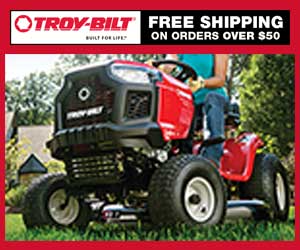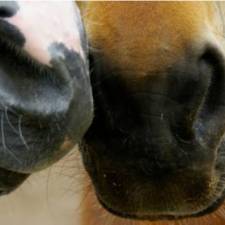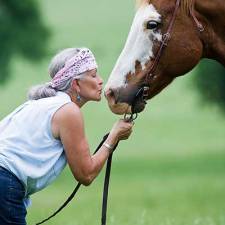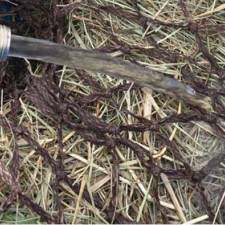
To choose the correct bedding and feed for your horse, you need to consider a number of factors, including:
- Age: Younger horses and older horses may have different bedding and feeding needs. For example, younger horses may need more bedding to cushion their joints, and older horses may need a more digestible feed.
- Activity level: Horses that are more active, such as performance horses, may need a different diet than horses that are less active, such as pleasure horses.
- Health: Horses with certain health conditions, such as allergies or digestive problems, may need a specialized bedding or feed.
- Climate: Horses that live in extreme climates may need a different bedding or feed than horses that live in more moderate climates.
Once you have considered these factors, you can start to narrow down your choices. Here are some tips for choosing the correct bedding and feed for your horse:
Bedding:
- Choose a bedding that is absorbent, comfortable, and safe for your horse.
- Avoid bedding that is dusty or moldy, as this can irritate your horse's respiratory system.
- Consider using a bedding that is compostable, so that you can reduce your environmental impact.
Feed:
- Choose a feed that is appropriate for your horse's age, activity level, health, and climate.
- Avoid feeding your horse too much grain, as this can lead to health problems such as obesity and laminitis.
- Offer your horse plenty of hay or grass, as this is the best source of fiber for horses.
If you are unsure which bedding or feed is right for your horse, it is a good idea to consult with a veterinarian or equine nutritionist. They can help you to assess your horse's individual needs and to choose the best bedding and feed for your horse's health and well-being.
Here are some additional tips for choosing and using bedding and feed for your horse:
Bedding:
- Spread the bedding evenly in the stall to provide a soft and comfortable surface for your horse to lie down on.
- Remove wet and soiled bedding on a daily basis to help prevent the growth of bacteria.
- Add fresh bedding to the stall as needed.
Feed:
By following these tips, you can choose the correct bedding and feed for your horse and help to ensure that your horse stays healthy and happy.
Featured Listings - Bedding & Feed
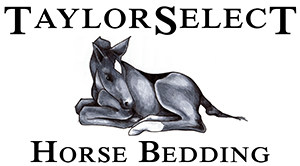 Rockton, IL 61072
Rockton, IL 61072
ph: (815) 601-3002
Email: info@taylorselect.com

We offer a variety of bedding products to satisfy even the most discriminating buyer. Our products range from pine shavings of varying sizes to pine pellets and chopped straw. With so many products to choose from you are assured to find the right product for you.
Featured Listings - Feed Analysis
 730 Warren RD, Ithaca, NY 14850
730 Warren RD, Ithaca, NY 14850
ph: (877) 819-4110
Email: service@equi-analytical.com
We specialize in the most modern techniques for determining the nutrient content of forage and feed for horse owners. International samples accepted.
Please note: many of these companies also sell supplements. Please refer to the website or contact the supplier directly.
Bedding & Feed - General
Bedding & Feed - National - United States
- Aden Brook
- Airlite USA Animal Bedding
- Aubuchon Hardware
- Bar ALE
- Big R
- Blain's Farm and Fleet
- C-A-L Ranch Stores
- Country Max
- D & B Supply
- D & L Farm and Home
- Haygain - Hay Steamers
- Kahoots Feed & Pet
- Keyflow USA
- Lucerne Farms Forage
- Modesto Milling
- Murdoch's Ranch and Home Supply
- Orscheln Farm & Home
- Pleasant View Farms
- Runnings
- Rural King
- Southern States
- Standlee Premium Western Forage
- Tractor Supply
Bedding & Feed - United States
Alabama
- Alabama Farmers Cooperative, Inc., P.O. Box 2227, Decatur, AL 35609
- C.T. Garvin Feed & Seed, 2214 Holmes Ave. Northwest, Huntsville, AL 35816
- St. Elmo Feed & Seed, 9001 Highway 90 West St. , Irvinton, AL 36544
- Tucker Milling LLC, 85 Signal Point Road, Guntersville, AL 35976
Alaska
- Alaska Feed Company, 1600 College Road, Fairbanks, AK 99709
- Alaska Mill Feed & Garden Center, 1501 E 1st Ave., Anchorage, AK 99501
- Kenai Feed & Supply, 38612 K-Beach Road, Kenai, AK 99611
Arizona
- Arizona Feeds Country Store, 4743 N. Highway Dr., Tucson, AZ 85705
- Black Mountain Feed and C & H Hay Barn, 17230 N Cave Creek Road, Phoenix, AZ 85032
- Vaquero Feed and Livestock Supply, 3301 North Freeway Road, Tucson, AZ 85705
Arkansas
- Circle L Feed & Hardware, 5989 Heber Springs Road, W Quitman, AR 72131
- Powell Feed and Milling, 181 W. Main, Green Forest, AR 72638
- Ranalli Farms, 2122 W Henri De Tonti Blvd., Springdale, AR 72762
- Wood's Feed Store, 25 S. Pine St., Cabot, AR 72023
California
- An Equine Addiction, 2940 Ramona Ave., Sacramento, CA 95826
- Big Horse Feed, 33320 Temecula Parkway, Temecula, CA 92592
- Farmers Warehouse, 4367 Jessup Road, Keyes, CA 95328
- Finta Hay Service, 4265 Camino Diablo Road, Byron, CA 94514
- Fox Feed, 17028 Sierra Hwy., Canyon Country, CA 91351
- Hawthorne Country Store, 2762 S. Mission Road, Fallbrook, CA 92028
- Higby's Country Feed, 8470 Currey Road, Dixon, CA 95620
- King Feeds, 512 Metz Road, King City, CA 93930
- Kruse Feed & Supply, Inc., 2300 E. Lambert Road, La Habra, CA 90631
- Lee's Feed and Western Store, 4110 Mother Lode Dr., Shingle Springs, CA 95682
- Mallard Creek, 4095 Duluth Avenue, Rocklin, CA 95765
- Powell Bros. Feed & Pet Supply, 1895 Broadway, Vallejo, CA 94589
- River Town Feed and Pet Country Store, 200 First Street, Petaluma, CA 94952
- RT Hay LLC, California's source for Premium Horse Hay
- Sheldon Feed and Supply, 8928 Grant Line Road, Elk Grove, CA 95624
- Sierra Hay & Feed, 150 Flocchini Circle, Lincoln, CA 95648
- Star Milling Company, 24067 Water Street, P.O. Box 1987, Perris, CA 92572
- Triple I Press, LLC, 2001 Verde School Road, Holtville. CA 92250
Colorado
- Country Corner Feed and Tack LLC , 843 27th Street Place, Greeley, CO 80631
- J & T Country Feeds, Inc., 3616 W 10th St., Greeley, CO 80634
- Northern Colorado Feeders Supply, 359 Linden St., Fort Collins, CO 80524
- Northern Feed & Bean, 33278 US Highway 85, Lucerne, CO 80646
- Rockin' B Feed & Supply, 12440 Black Forest Road, Black Forest, CO 80908
- Sissons Feed & Ranch Co., 639 Main Street, Delta, CO 81416
- Stockyards Ranch Supply, 6990 US Hwy. 85, Commerce City, CO 80022
- Wardle Feed, 7610 W 42nd Avenue, Wheat Ridge, CO 80033
Connecticut
- Aubuchon Hardware, 209 Kennedy Drive, Putnam, CT 06260
- Horses and Hounds, 15 Mill Pond Drive, Granby, CT 06035
- Lakeside Feeds, 31 Lake Drive, Guilford, CT 06437
- Sigfridson Wood Products, 125 Fitzgerald Road, Brooklyn, CT 06234
- Valley Home And Garden, 16 Railroad Street, Simsbury, CT 06070
Delaware
Florida
- Amber Glen Feed Depot, 6076 Park Boulevard, Pinellas Park, FL 33781
- Clermont Equestrian Tack Feed & Pet Store, 750 West Desoto St., Clermont, FL 34711
- County Line Feed & Supply, Inc., 9293 US Hwy 441 Boynton Beach, FL 33437
- Finish Line Feed Inc., 145 Southwest 3rd Avenue, Dania Beach, FL 33004
- Florida Farm & Seed Inc., 3600-C Weems Road, Tallahassee, FL 32317
- Lay's Western Wear and Feed, 5530 Old Road 37, Lakeland, FL 33811
- Manning's Feed & Seed, 5493 Alabama St., Milton, FL 32570
- Palmer Feed Store, 912 W. Church Street, Orlando, FL 32805
- Ranch Feed & Pet Supply Inc., 6213 SW Citrus Blvd., Palm City, FL 34990
- Red Barn and Feed Supply Inc., 12948 Okeechobee Road, Loxahatchee, FL 33470
- Schiro's Feed at Fishhawk, 7015 Lithia-Pinecrest Road, Lithia, FL 33547
- Schiro's Hay and Feed, 16529 CR 672 Lithia, FL 33547
- Sparr Building and Farm Supply, 13033 NE Jacksonville Road, Sparr, FL 32192
- Sparr Building and Farm Supply, 240 S. Main Street, Williston, FL 32696
- Sparr Building and Farm Supply, 6000 Signature Drive, Wildwood, FL 34785
- Standard Feed Company, 1236 Kings Road, Jacksonville, FL 32204
- Sunset Feed & Supply, 7650 SW 117th Ave, Miami, FL 33183
Georgia
- Agri Supply, 2825 US Highway 84 West, Valdosta, GA 31601
- Bar None Country Store, 7991 Hwy 6, Waco, TX 76712
- Barnhart's Feed and Seed, 2323 Georgia 88, Hephzibah, GA 30815
- Cedargate Farms, 848 Copeland Road, Newnan, GA 30263
- Cherokee Feed and Seed, 2370 Hightower Road, Ball Ground, GA 30107
- Mary's Tack Feed Pet, 4860 Atlanta Hwy., Athens, GA 30622
- Smith Farm Supply, 135 Depot Street, Warrenton, GA 30828
- The Stock Market Country Store, 4479 GA Hwy. 20 SE, Conyers, GA, 30013
- West Walton Feed and Tack, 237 Snook Thompson Rd SE, Oxford, GA 30054
Idaho
- Country Store, 6265 N. Government Way, Coeur d’Alene, ID 83815
- Intermountain Feed, 2310 Frontage Road, Lewiston, ID 83501
- Legacy Feed and Fuel, 3100 S. Meridian, Meridian, ID 83642
- Mary's Feed & Farm, 522 U.S. 2, Oldtown, ID 83822
Illinois
- Guardian Horse Bedding, Equustock, LLC, 8179 Starwood Drive, Unit 1, Loves Park, IL 61111
- Ludwig's Feed Store, 13205 131st Street, Lemont, IL 60439
- Prairietown Feed Service, 8587 North Schiller Street, Dorsey, IL 62021
- Scottdale Feed And Supply, 11N840 Romke Road, Hampshire, IL 60140
- Taylor Select Horse Bedding, Rockton, IL 61072
- Trellis Farm & Garden, 2N492 Kirk Road, St. Charles, IL 60174
- VFC Distributors Inc., 1716 E 1st Ave., Milan, IL 61264
Indiana
- Jake's Feed and Garden, 326 S State Road 49, Valparaiso, IN 46383
- Kern, Kirtley, & Herr Co. Inc., 5780 200 E, Lebanon, IN 46052
- Leos Feed and Garden Center, 13406 Wicker Avenue, Cedar Lake, IN 46303
- Milan Center Feed & Grain Inc., 15402 Doty Rd, New Haven, IN 46774
- Richmond's Feed, Pet, & Gifts, 704 E. Waterford St., Wakarusa, IN, 46573
- The Feed Barn Inc., 708 East Talmer Ave., Suite B, North Judson, IN 46366
- Wallace Grain Co., 604 South Main Street Sheridan, IN 46069
Iowa
- Brekke's Town & Country Store, 23827 580th Ave, Ames, IA 50010
- Eldon C. Stutsman Inc., 121 Lassie St., Hills, IA 52235
- H,&,S Feed and Country Store, 416 Highway 432, Oskaloosa, IA 52577
- Hendrick's Feed & Seed Co., 880 Central Avenue, Dubuque, IA 52001
- Ogden Farm & Feed, 113 SW 4th Street, Ogden, IA 50212
Kansas
- Kansas Country Store, 728 Cherokee, Leavenworth, KS 66048
- LifeTime Pet, 1030 East Santa Fe, Olathe, KS 66061
- Premiere Farm and Home, 900 SW University Blvd., Topeka, KS 66619
- Tarwater Farm & Home Supply, 4107 NW Topeka Blvd., Topeka, KS 66617
- Woodard Mercantile, 4160 N Maize Road, Maize, KS 67101
Kentucky
- Bardstown Mills, 1393 Withrow Ct., Bardstown, KY 40004
- Benge Farm Supply Inc., 870 East 4th Street, London, KY 40741
- KBC International Inc., 140 Venture Court, Suite 1, Lexington, KY 40511
- Shuck Fence, 704 Mt. Eden Road, Shelbyville, KY 40065
Louisiana
- Old Time Farm Supply Inc., 13218 Louisiana 44, Gonzales, LA 70737
- Paul's Farm and Garden Supply, 1300 North Market Street, Shreveport, LA 71107
- Serios' Feed & Seed, 5109 E Texas St., Bossier City, LA 71111
Maine
- Hussey's General Store, 510 Ridge Road, Windsor, ME 04363
- Long Horn Horse and Pet Supply, 1371 Long Plains Road, Buxton, ME 04093
- Maine Horse & Rider, 5 Debeck Drive, Holden, ME 04429
- Maine Horse and Rider, 231 Main Road, Holden, ME 04429
- Paris Farmers Union, 12 Progress Park South, Newport, ME 04953
- Paris Farmers Union, 1243 Roosevelt Trail, Raymond, ME 04071
- Paris Farmers Union, 13 Sandy Creek Road, Bridgton, ME 04009
- Paris Farmers Union, 227 Main Street, South Paris, ME 04281
- Paris Farmers Union, 230 Main Street, Jay, ME 04239
- Paris Farmers Union, 299 Auburn Road, Turner, ME 04282
- Paris Farmers Union, 64 Auburn Street, Portland, ME 04103
- Paris Farmers Union, 671 Main Street, Lewiston, ME 04240
- Paris Farmers Union, 83 Royal Street, Winthrop, ME 04364
- Plummer's Hardware, 235 Parker Farm Road, Buxton, ME 04093
- Spiller Farm, 85 Spiller Farm Lane, Wells, ME 04090
Maryland
- 231 Farm Center, 171 Skipjack Road, Prince Frederick, MD 20678
- AA Co. Farm, Lawn, and Garden Center, 155 8th Avenue, N.W., Glen Burnie, MD 21061
- Bowman’s North Glade Feed & Supply, 12435A Woodsboro Pike, Keymar, MD 21757
- Farm and Home Service, 23000 Davis Mill Road, Germantown, MD 20876
- Farm and Home Service, 7625 Main Street, Sykesville, MD 21784
- Farm and Home Service, 9064 Frederick Road, Ellicott City, MD 21042
- H.C. Summers, 4002 Jefferson Pike, Jefferson, MD 21755
- River City Farm and Pet Supply, 5 Milestone Terrace, Williamsport, MD 21795
- The Mill, 424 N Main St., Bel Air, MD 21014
Massachusetts
- A.W. Brown's, 144 Shaker Road, East Longmeadow, MA 01028
- Aubuchon Hardware and Feed, 70 Worcester Road, Webster, MA 01570
- Barnstable Farm and Pet, 48 Lombard Ave W., Barnstable, MA 02668
- Bridgewater Farm Supply Co., 1000 Plymouth St., Rte 104, Bridgewater, MA 02324
- Chipaway Stables, Inc., 152 Quaker Lane, Acushnet, MA 02743
- Devine Feed & Pet, 711 Main Street, Norwell, MA 02061
- Erikson Grain Mill Inc., 113 Main Street, Acton, MA 01720
- Feeds 'n Needs, 109 Uxbridge Road, Mendon, MA 01756
- Greenfield Farmers Coop Exchange Agway, 269 High Street, Greenfield, MA 01301
- Hardwick Farmers' Cooperative Exchange, 444 Lower Road, Route 32, Gilbertville, MA 01031
- Horse and Buggy Feeds, 380 School St., Winchendon, MA 01475
- Koopman Lumber Company, 12 Douglas Street, Uxbridge, MA 01569
- Koopman Lumber Company, 82 Worcester Street, North Grafton, MA 01536
- Lamore Lumber/ Post & Beam Buildings, 724 Greenfield Road, Deerfield, MA 01342
- Roger's Farm and Garden Supply, 269 West Main St., Millbury, MA 01527
- The Hardwick Farmers' Co-operative Exchange, 444 Lower Road, Gilbertville, MA 01031
- The Mane Place, 504 West Hartford Avenue, Uxbridge, MA 01569
- Ventura Grain, 148 Longmeadow Road, Taunton, MA 02780
Michigan
- Cannonsburg Wood Products, 10251 Northland Drive, Rockford, MI 49341
- Dexter Feed Mill, 3515 Central St., Dexter, MI 48130
- Family, Farm and Home, 1753 Madison Street, Muskegon, MI 49442
- Livingston Feed & Seed, 361 Marion Street, Howell, MI 48843
- Masserant's Feed & Grain, 27550 Telegraph Road, Flat Rock, MI 48134
- Masserant's Feed & Grain, 3456 Mill Road, Newport, MI 48166
- Masserant's Feed & Grain, 5609 E Dunbar Road, Monroe, MI 48161
- Oakridge Feed & Pet Salon, 7035 Stadium Drive, Kalamazoo, MI 49009
- Piers Feed, A-4384 58th St., Holland, MI 49423
Minnesota
- All Mac Inc., 6560 245th Ave NE, Stacy, MN 55079
- Fluegel's Farm, Garden & Pet, 14700 S Robert Trail, Rosemount, MN 55068
- Great Lakes Lumber Company, 27238 Isanti St., Isanti, MN 55040
- Pine Products, Inc., 11780 County Road 32, Waconia, MN 55387
- Rochester Feed & Country Store, 5 11 1/2 Street SE, Suite B, Rochester, MN 55904
- St. Peter Lumber Company, 200 South Front Street, Saint Peter, MN 56082
Mississippi
- Co-Lin Feed & Seed, 1232 Highway 51 NE, Brookhaven, MS 39601
- Frontier Western Store, 5880 Goodman Road, Olive Branch, MS 38654
- Mattox Services, 132 N. Maple Street, Aberdeen, MS 39730
- Southern Seed & Feed, 5023 Magnolia Dr., Macon, MS 39341
Missouri
- D-Tone Feed, 1006 W South St., Plattsburg, MO 64477
- D-Tone Feed, 2089 Hwy 33, Maysville, MO 64469
- Nixa Hardware & Seed Co., 510 W Mt. Vernon Nixa, MO 65714
- Somo Ag SoMo Farm & Ranch, 2850 W Kearney St., Springfield, MO 65803
- Sutherlands, 2200 S. Commercial Ave., Harrisonville, MO 64701
Montana
- Bridger Animal Nutrition, 501 Evergreen Dr, Bozeman, MT 59715
- Lakeland Feed & Supply, 110 Mill St., Hamilton, MT 59840
- The Spur Line, 1370 Highway 10, West Livingston, MT 59047
- Westland Seed Inc., 36272 Round Butte Road, Ronan, MT 59864
Nebraska
- Double A Feeds Inc., 814 Main Street, Bridgeport, NE 69336
- Stockman's Feed and Supply, 209 South Street, McCook, NE 69001
Nevada
- Eastern Sierra Feed, 1245 Waterloo Lane, Gardnerville, NV 89410
- IFA Country Store, 3176 W. Martin Ave., Las Vegas, NV 89118
New Hampshire
- Aubuchon Hardware and Feed, 41 Concord Road, Lee, NH 03824
- Aubuchon Hardware and Feed, 7 Main Street, Alton, NH 03809
- Barn Store of New England, 96 Old Turnpike Road, Salisbury, NH 03268
- Clark's Grain Store, 1010 White Mountain Highway, Ossipee, NH 03864
- Clark's Grain Store, 271 Suncook Valley Road, Chichester, NH 03258
- Dodge Grain Co. Inc., 59 North Broadway, Salem, NH 03079
- Henniker Farm & Country Store LLC, 110 Bradford Road, Henniker, NH 03242
- Horse and Buggy Feeds, 24 Dunbar St., Keene, NH 03431
- Nashua Farmers' Exchange, 38 1/2 Bridge St., Nashua, NH 03060
- Paris Farmers Union, 1116 Eastman Road, North Conway, NH 03860
- The Cheshire Horse, 8 Whittemore Farm Road, Swanzey, NH 03446
- West Lebanon Supply, 12 Railroad Avenue, West Lebanon, NH 03784
New Jersey
- Allens Feed & Pet Supplies, 204 Carranza Road, Tabernacle, NJ 08088
- Mike's Feed Farm, 90 Hamburg Tpk., Riverdale, NJ 07457
- Pequannock Feed & Pet Supply, 85 Marshall Hill Road, West Milford, NJ 07480
New Mexico
- El Dorado Country Pet, 7 Avenida Vista Grande #D, Santa Fe, NM 87508
- Horse N Hound Feed N Supply, Inc., 991 W Amador St., Las Cruces, NM 88005
- Horsemen’s Feed & Supply, 8812 2nd Street NW, Albuquerque, NM 87114
- Roswell Livestock & Farm Supply, 1105 East 2nd Street, Roswell, NM 88201
- The Village Mercantile, LLC, 3675 Corrales Road, Corrales, NM 87048
New York
- Cargill Animal Nutrition, 8 Southwoods Boulevard, 4th Floor, Albany, NY 12211
- Country Max, 1298 Route 104, Ontario, NY 14519
- Country Max, 1945 Balsley Road, Seneca Falls, NY 13148
- Country Max, 276 State Route 104, Oswego, NY 13126
- Country Max, 2964 State Route 31, Baldwinsville, NY 13027
- Country Max, 3179 Erie Boulevard E, DeWitt, NY 13214
- Country Max, 4101 Lakeville Road, Geneseo, NY 14454
- Country Max, 4575 W. Henrietta Rd. Henrietta, NY 14467
- Country Max, 4658 West Ridge Rd. Spencerport, NY 14559
- Country Max, 4875 Route 19, Brockport, NY 14420
- Country Max, 5808 Crabtree Lane, Cicero, NY 13039
- Country Max, 5930 County Road 41, Farmington, NY 14425
- Country Max, 610 East Main Street, Batavia, NY 14020
- Country Max, 625 East Main St., Palmyra, NY 14522
- Country Max, 6265 County Rd. 32, Norwich, NY 13815
- Country Max, 7485 Shawnee Road, N. Tonawanda, NY 14120
- Country Max, 897 Turk Hill Road, Fairport, NY 14450
- Country Max, 980 State Route 13, Cortland, NY 13045
- Equi-Analytical
- Heritage Feed & Supply, 2812 Rt 17K, Bullville, NY 10915
- Higbie Farm Supplies, 3440 Union St., North Chili, NY 14514
- Royal Wood Shavings, 22 Ferguson Lane, Queensbury, NY 12804
- The Cheshire Horse, 402 Geyser Road, Saratoga Springs, NY 12866
- Walker's Farm, Home & Tack, 5565 State Route 4, Fort Ann, NY 12827
North Carolina
- Country Farm & Home Supply, 101 S Small St., Pittsboro NC
- Double LL Tack & Feed, Inc., 1221 NC 55 W, Coats, NC 27521
- Farmers Supply Company, 2025 Oleander Dr., Wilmington, NC 28403
- Forrest Farm Supply, 502 Main Street, Bayboro, NC 28515
- Fox Country Store, 680 West Main Street, Burnsville, NC 28714
- Johnson's Milling and Feed, 8810 US Hwy 64-90 W, Taylorsville, NC 28681
- Mane Street Horse and Pet, 7915 Lancaster Highway, Waxhaw, NC 28173
- Moore Equine & Feed Supply, 1012 N. May St., Southern Pines, NC 28327
- Mountain Valley Country Store, 670 Highway 69, Hayesville, NC 28904
- Onslow Feed and Grain, 410 West Hargett St., Richlands, NC 28574
- Pittsboro Feed, 1103 East Street, Pittsboro, NC 27312
- S&H Feed & Garden, 4043 Freedom Way, Hubert, NC 28539
- Twin Oaks Feed & Supply, 8501 Kennebec Road, Willow Springs, NC 27592
Ohio
- ASE Feed & Supply, 211 South Jefferson Avenue, Plain City, OH 43064
- BDK Feed and Supply, 204 Broadway Street, Blanchester, OH 45107
- Bethel Feed & Supply, 528 W Plane St., Bethel, OH 45106
- Carneys Feed Mill Inc., 5284 Edman Road, Batavia, OH 45103
- Champion Feed & Pet Supply, 140 S. Main St., Mechanicsburg, OH 43044
- Champion Feed & Pet Supply, 2524 SR 37E, Delaware, OH 43015
- Faler Feed Store Inc., 4360 Cedar Hill Road, NW, Canal Winchester, OH 43110
- Geauga Feed, 11030 Kinsman Road, Newbury, OH 44065
- Granville Milling Co., 145 N. Cedar Street, Newark, OH 43055
- Granville Milling Co., 1522 E. Main Street Lancaster OH 43130
- Granville Milling Co., 2524 Ohio 37, Delaware OH 43015
- Granville Milling Co., 400 S Main St, Granville OH 43023
- Heritage Cooperative, 815 Planing Mill Street Caldwell , OH 43724
- Homestead Feed & Supply, 1833 N Dayton-Lakeview Road, New Carlisle, OH 45344
- Keller Grain, 11597 Upper Lewisburg Salem Road, Brookville, OH 45309
- Newtown Feed & Supply, 6876 Main Street, Newtown, OH 45244
- Reiterman Feed & Supply, LLC, 103 N. London St., Mt. Sterling, OH 43143
- Scioto Farm Supply, 273 Seney Road, Chillicothe, OH 45601
Oklahoma
- Bethany Country Store, 3401 N Rockwell, Bethany, OK 73008
- Ross Seed Company, 100 South Choctaw Ave., El Reno, OK 73036
Oregon
- Aloha Feed Garden & Pet, 18840 SW Alexander St., Aloha, OR 97006
- Buchanan Cellars, 855 NE 5th Street, McMinnville, OR 97128
- Burns Feed Store, 29215 S.E. Orient Drive, Gresham, OR 97080
- Clackamas Feed & Pet Supply, 15734 S.E. 130th, Clackamas, OR 97015
- Copper Creek Mercantile Keizer, 4415 River Road North, Keizer, Oregon 97303
- McKenzie Feed, 4441 Main Street, Springfield, OR 97478
- Old Mill Feed & Garden, 1313 Main Street, Dallas, OR 97338
- Valley Feed and Pet Supply, 112 Royal Ave. S., Eagle Point, OR 97524
Pennsylvania
- Chaar, 1635 Airport Road, Allentown, PA 18109
- Heidel Hollow Farm, 7419 Saegersville Road, Germansville, PA 18053
- McCracken’s, 700 N Market St., Elizabethtown, PA 17022
- Mountain Road Feed Store Mountain Road, Pennsylvania 715, Reeders, PA 18352
- Oley Valley Feed, 143 Cleaver Road, Oley, PA 19547
- Oxford Feed and Lumber, 112 Railroad Avenue, Oxford, PA 19363
- Pickering Valley Feed and Farm, 305 Gordon Dr., Exton, PA 19341
- R.H. Rohrer & Sons, 16 E. State Street, Quarryville, PA 17566
- Rockwell Feeds, 1943 Shumway Hill Road, Wellsboro, PA 16901
- Stoltzfus Feed and Supply, 80 Route 41, P.O. Box 427, Gap, PA 17527
- Triple Crown Nutrition, P.O. Box 220, Mohnton, PA 19540
Rhode Island
South Carolina
- Agri Supply of Florence, 1918 E Palmetto St, Florence, SC 29503
- Barnyard Feed & Supply, 739 Hwy 78, Ridgeville, SC 29472
- Conway Feed and Garden, 2200 North Main Street, Conway, SC 29526
- Mane Street Horse and Pet, 40 East DeKalb Street, Camden, SC 29020
Tennessee
- Columbia Farm Supply, 170 Bear Creek Pike, Columbia, TN 38401
- Hall's Feed & Seed, 155 Highway 72 East, Collierville, TN 38017
- Kelton's Hardware & Pet, 2870 Old Fort Parkway, Murfreesboro, TN 37128
- R & J Feed Supply, 1030 South Highland Ave., Jackson, TN 38301
Texas
- Arcola Feeds, 6215 FM 521, Arcola, TX 77583
- Ark Country Store, 209 South Highway 77, Waxahachie, TX 75165
- Big Tex Feed, 7102 Cullen Blvd., Houston, TX 77021
- Clifton Feed and Service Center, Inc., 203 E. 5th Street, Clifton, TX 76634
- HF&C Feeds, Inc., 7811 West 82nd St., Lubbock, TX 79424
- Holt Ranch & Feed, 7612 Texas 66, Royse City, TX 75189
- J and B Feed and Hay, 12303 Edgebrook Drive, Austin, TX 78748
- Northeast Texas Famers Co-op, 428 N Jackson, Sulphur Springs, TX 75482
- Potts Feed Store, 119 N Texas St., Emory, TX 75440
- Potts Feed Store, 202 Bermuda St., Quitman, TX 75783
- Producers Co-op. 1800 North Texas Avenue. Bryan, TX 77803
- Rockin B Saddlery and Feed Store, 19821 State Highway 16 S., Von Ormy, TX 78073
- Rudy's Feed Store, 1801 Nogalitos St., San Antonio, TX 78225
- Russell Feed & Supply, 12320 Business Hwy. 287 N Ft. Worth, TX 76179
- Russell Feed & Supply, 155 NW Parkway St., Azle, TX 76020
- Russell Feed & Supply, 1621 N. Crowley Road, Crowley, TX 76036
- Russell Feed & Supply, 5000 E Belknap St, Haltom City, TX 76117
- Russell Feed & Supply, 5810 Jacksboro Hwy, Ft. Worth, TX 76114
- Russell Feed & Supply, 8704 U.S. 377, Benbrook, TX 76126
- Russell Feed & Supply, 9804 Camp Bowie W Blvd, Fort Worth, TX 76116
- Steinhausers, 228 East Front Street, Sealy, TX 77474
- Wabash Feed, 5701 Washington Avenue, Houston, TX 77007
- Wendland's Jupe Feeds Incorporated, P.O. Box 40, Temple, TX 76503
Utah
Vermont
- Garland's Farm & Garden, 70 Park Street, Rutland, VT 05701
- Guy's Farm and Yard, 155 Portland Street, Morrisville, VT 05661
- Guy's Farm and Yard, 19 Barre Street, Montpelier, VT 05602
- Guy's Farm and Yard, 21 Zephyr Road, Williston, VT 05495
- Morrison's Feed Bag, 1186 Memorial Drive St., Johnsbury, VT 05819
- O.C. McCuin & Sons, 3337 Route 78, Highgate Center, VT 05459
- Paris Farmers Union, 1438 Route 7, South Middlebury, VT 05753
- River Bend Farm Supplies, 320 Riverdale Road, Townshend, VT 05353
- S.E. Smith Inc., 176 Marble Street, West Rutland, VT 05777
- The Farmyard Store, 3262 U.S. RT 5, Derby, VT 05829
- Whitman's Feed, 1873 VT Rte 67E, North Bennington, VT 05257
Virginia
- ASC Agri-Supply, 3001 N Normandy Dr., Petersburg, VA 23805
- Ashland Feed Store, 120 N. Thompson Street, Ashland, VA 23005
- Country Farm Service, 325 Wausau Place, Culpeper, VA 22701
- EasyBedding™ Pellets
- Hertzler Farms and Feed Inc., 3209 Buckingham Road, Powhatan, VA 23139
- Southwest Farm Supply, 675 North Meadow Street, Galax, VA 24333
- Sunrise Shavings, 553 Jeb Stuart Hwy., Red Oak, VA 23964
- Tri-County, 7408 John Marshall Hwy., Marshall, VA 20115
Washington
- Dayville Hay & Grain, Inc., 11804 Springhetti Road, Snohomish, WA 98296
- Laurel Farm & Western Supply, 325 West Laurel Road, Bellingham, WA 98226
- Reber Ranch, 28606 132nd Ave SE, Kent, WA 98042
- Remnant Farms, 1501 Guild Road, Woodland, WA 98674
- The Farm Store, 561 W. Main Street, Chehalis, WA 98532
- The Grange, 154 NE Gilman Blvd., Issaquah, WA 98027
West Virginia
Wisconsin
- Cornette Farm Supply, 6775 Follett St., Greenleaf, WI 54126
- D&D Farm Supply, 1310 E. Main St., Arcadia, WI 54612
- Friends of Nature Feed, W309 S4837 Commercial Drive, Genesee Depot, WI 53127
- Jay-Mar, Inc., Hwy. B, Plover, WI 54467
- Landmark Feed, Seed & Supply, N58 W6181 Columbia Road, Cedarburg, WI 53012
- Reynold's Livestock LLC, 3725 Reynolds Road, Dodgeville, WI 53533
- The Delong Co., 513 Front St., Clinton, WI 53525
Wyoming
- C & A Pet & Livestock Supply, 581 W. Garfield St., Laramie, WY 82702
- Cody Feed & Livestock Supply, 308 19th Street, Cody, WY 82414
- Douglas Feed, 55 Esterbrook Road, Douglas, WY 82633
- Farson Feed Store, 3800 Highway 191, Farson, WY 82932
- Noland Feed Inc., 268 Industrial Ave., Casper, WY 82601
- Tower Valley Ag Supply, 313 Hwy 24, Hulett, WY 82720
Bedding & Feed - International
Bedding & Feed - International - Canada
Bedding & Feed - United Kingdom
Equine Enrichment In A Digital World: Small Barn Tweaks, Big Horse Wins
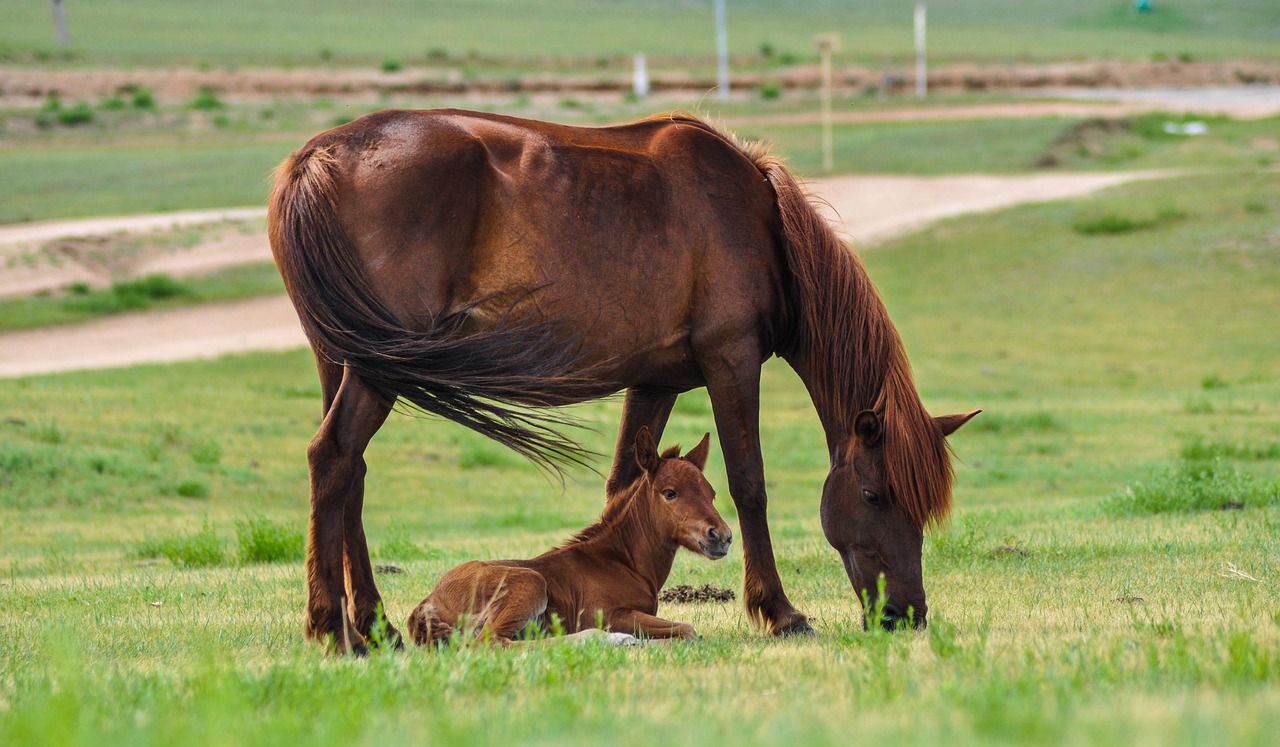
Equestrians know a steady mind keeps the stride honest. We obsess over feed, feet, and fitness, yet curiosity and calm cement the whole picture. Daily enrichment doesn’t need gadgets or drama; it requires intention and rhythm. Even outside equestrian circles, an igaming solution aggregator shows how intelligent curation helps people find what matters—practical inspiration for owners, sorting advice, tools, and routines for real horses. EIE readers value practical, trustworthy ideas built for everyday barn life.
Why Enrichment Belongs In Every Program
Horses evolved to roam, graze, and hang out with buddies for hours, which stalls and tight schedules often compromise. When needs slip, boredom or stress can surface as weaving, cribbing, or box-walking. Thoughtful enrichment nudges time budgets toward natural behavior, easing anxiety and sharpening focus under saddle. That doesn’t replace good turnout or forage; it layers on calm, curiosity, and choice.
What The Research Says (In Plain Barn English)
Reviews link stereotypic behaviors to suboptimal management, with foraging-focused tweaks showing promise. Slow-feed hay bags lengthen eating time and can reduce unwanted patterns. Simple puzzle feeders, mirrors, or activity balls shift stall time away from standing and into purposeful engagement. None is are cure-all, but used consistently, they help horses settle and learn. That’s the win.
Easy Daily Tweaks You’ll Actually Keep Doing
Grand plans fade; small habits stick. Anchor enrichment to chores you already do—hay, mucking, grooming—so it happens even on busy days. Rotate items weekly to keep novelty without reinventing the wheel. Pair compatible turnout buddies for quiet social time. Keep notes so the barn team sees what works and what flops for each horse.
Five Quick Ideas To Try This Week
- Swap one hay feeding for a slow net to stretch foraging time without extra cost.
- Add a treat-dispensing ball for short, supervised sessions, then rotate it out.
- Create a sniff-and-explore corner with safe textures and scents; refresh monthly.
- Set pole patterns that ask for look, think, step—not just “go round.”
- Test a stall mirror for anxious types; track behavior for two weeks.
Training Upside: Calm Horses Learn Faster
A settled horse hears lighter aids, travels more softly, and copes better off-property. By meeting mental needs first, you lower overall arousal, so show-day noise or new venues feel less threatening. That steadiness benefits amateurs and pros alike, from first crossrails to complex lateral work. You’re teaching a brain, not just a body; enrichment keeps the lights on.
Match Tools To Temperament And Job
Not every horse loves the same puzzle or pace. Start with low-effort foraging games, then layer challenges that fit the horse’s mind and discipline. Trail-minded horses may enjoy variety underfoot, while ring horses might benefit from thoughtful pole grids. Give each experiment two weeks and record changes in behavior, appetite, and work ethic.
Using Simple Tech To Keep Everyone On The Same Page
You don’t need fancy systems to stay organized, but digital logs reduce misses. Stable apps and software track health notes, shoeing, vaccines, ride plans, and enrichment rotations, so nothing lives only in someone’s head. That clarity helps trainers, vets, and grooms pull in the same direction, quietly improving welfare and results.
Turn Data Into Kind, Consistent Routines
Give each horse a card—digital or paper—with a rotating plan: slow net on Monday, ball on Wednesday, poles on Friday. Snap quick photos or jot two-line notes after rides. Over time, you’ll spot patterns: which toy soothes pre-ride jitters, which days need extra hand-grazing: less guesswork, fewer flare-ups, more good work.
Curate Your Sources Like A Pro
EIE thrives by surfacing practical, credible equine content for a broad audience, and that mindset helps in the barn. Make a short list of trusted guides—veterinary-backed explainers on enrichment, welfare pages from national organizations, and hands-on DIY pieces. Review monthly, then trial one new idea with notes before scaling. Keep it real; keep it horse-first.
Choosing Products With Horse Sense
Flashy isn’t the point; safe and durable is. Favor gear that extends foraging, encourages gentle movement, or sparks controlled curiosity. Read product pages with a skeptical eye for claims and look for references to time budget changes or reduced stall vices. The best tools fit your space, your routine, and your horse’s personality.
A Quick Note On Organized Catalogs And Discovery
Well-structured directories outside our industry remind us why clean taxonomy matters. Clear categories and labeling help owners quickly find welfare-first ideas, rather than doom-scrolling. Even a directory of casino game developers demonstrates how indexing speeds discovery—a concept equine communities can borrow for training plans, enrichment libraries, and barn SOPs without losing the horse in the process.
Bottom Line: Curiosity Today, Confidence Tomorrow
Enrichment is not superfluous; it is part of good riding. Make minor, consistent adjustments to attendance and feed, matching them to temperament, and record your observations. Use simple tech for consistency, keep your sources tight, and celebrate tiny wins. A curious horse becomes a confident partner—and that confidence shows in every hoofbeat.
There are more interesting articles in our section on Tack & Farm.
What Pasture Snacks Mean for Horse Health
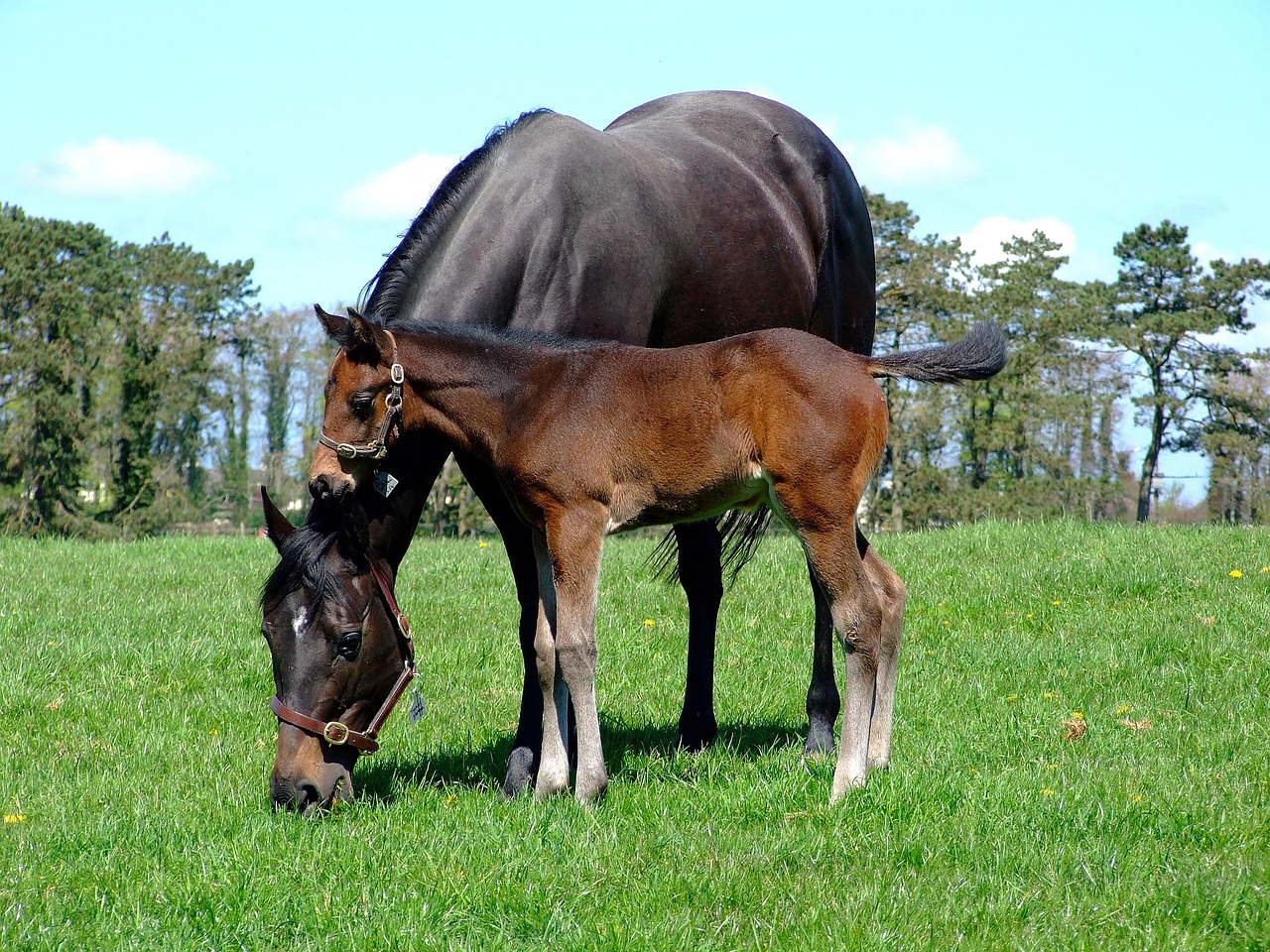
Horses don’t just munch on grass and call it a day.
They’ll wander a bit first, sniffle stuff around, nibble a little, and sometimes latch onto the same little patch like it’s the most delicious thing they’ve ever tasted. One horse might be really into clover, the other will hunt down every last dandelion – some horses even like mint or wild herbs. A pasture is to a horse what a buffet is to you.
But, as tasty as some buffets can be, they aren’t exactly healthy. Well, some are. But not all of them. This has much to do with the fact that some snacks are full of ‘the good stuff’, while some are just packed with nasties.
So this article is for you, the owner, so that you can see (and pay close attention) to the difference between which food is safe, and which isn’t.
Nutritional Impact of Common Pasture Snacks
As humans, horses are picky eaters. They won’t just eat any old grass that’s in front of them. Sure, they will if they HAVE TO. But only so in order to survive. You can be sure they won’t be happy about it. Not one bit.
In order to create healthy (and tasty) snacks, you need to put in the ‘good stuff’ into them (e.g., clover, dandelions, plantains, chamomile, mint, etc.).
This variety is very good for horses because it keeps their digestive system active the way nature intended. If the snack is tasty and healthy, then the horse is happy. This means less stress.
As far as nutritional values, these types of natural snacks are different from carrots, apples, and packaged treats you might usually give them. Pasture snacks have subtle amounts of vitamins and minerals, but because they graze, horses get them in steady amounts.
Hand-fed treats, on the other hand, are sweeter, and they’re given in bursts. Both are good and both deserve to have their place, but their roles aren’t the same.
This is why you’ll see a lot of horse owners browsing horse stalls for sale online to look and ask for features that make feeding routines easier to manage (e.g., safe hay racks, well-placed feed doors, etc.).
Safe Pasture Snacks vs. Risky Ones
Not every plant on the pasture is safe for your horse, so let’s see what’s okay, what’s risky, and what to be especially careful with.
Safe Snacks
There’s a good number of plants horses can safely eat while they’re grazing. Clover is one of the most common ones, and it’s very beneficial because it’s full of protein, which supports muscles and overall condition. Dandelions are another excellent choice, although many people see them as nothing more than weeds.
They’re packed with vitamins A and C, as well as minerals like calcium and potassium (great for bones and healthy teeth). Horses find them delicious, and they’re surprisingly healthy.
Wild herbs like plantain and chamomile have small digestive or even calming benefits. Mint is another herb that’s pretty popular with horses, but it’s not a big source of nutrition. Still, it’s safe and refreshing.
Risky Snacks
Even safe snacks can become risky if they’re eaten in excess, so make sure your horse always snacks in moderation.
Clover – safe in moderate amounts – is dangerous if a horse eats too much. It can cause slobbers, which is a condition caused by a fungus that (sometimes) grows on clover.
Lush spring grass is risky from the start because it contains a lot of sugar, which can trigger laminitis in sensitive horses.
Buttercups are another risk, although a lot of horses avoid them because they’re bitter. They’re actually mildly toxic if they’re eaten fresh, and they can irritate the digestive system.
Acorns are a seasonal risk in areas with oak trees. Some horses ignore them, but others will eat enough of them and cause serious poisoning. Horses are naturally curious, but this curiosity sometimes endangers their health.
Plants You Need to Be Careful with
Weeds and wild plants should never be a part of a horse’s diet.
Ragwort, horsetail, bracken fern, and yew are examples of toxic plants. Horses usually avoid them if they have plenty of good forage to eat, but if grazing is limited, they might start nibbling on something toxic simply because they’re bored.
Hunger, of course, would be the other reason.
Even small amounts of these plants can cause serious and long-term damage, so make sure to walk past pastures regularly and remove anything that might be dangerous.
Conclusion
Horses don’t care about nutrition labels and feed charts. As picky as they are, they would sometimes wander into a junk food aisle (if you’d let them) and make themselves sick. Think of them like big children. Would you leave it up to them to pick what they want?
Sure, in nature, they’d have no trouble eating what nature has intended them to eat. But here, in civilization, they’re constantly surrounded by a lot of different options – some of which aren’t that great for them, with some even being outright dangerous.
Remember that it’s up to you to prevent this, and every acorn they eat IS ON YOU. Every digestive problem a wild plant causes is also on you.
Do you research and inspect the pastures regularly to keep your horse(s) safe and happy.
There are more interesting articles in our section on Health & Education.







